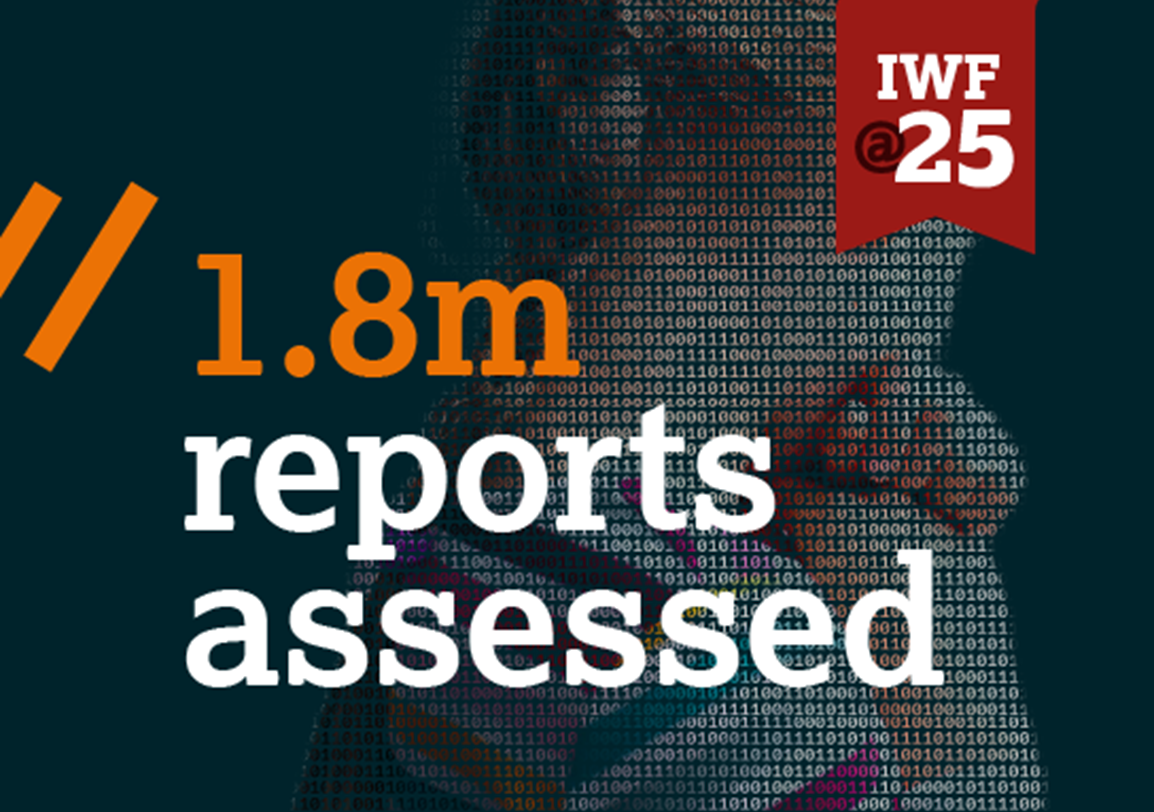
AI-generated videos of child sexual abuse a ‘stark vision of the future’
Real victims’ imagery used in highly realistic ‘deepfake’ AI-generated films

Published: Tue 26 Apr 2022
Despite efforts to curb the amount of child sexual abuse material hosted on the continent, Europe remains the ‘destination of choice’ for criminals and predators determined to host criminal content.
Europe remains the world’s largest hoster of child sexual abuse imagery with 62% of known images and videos being traced to a European Union country* in 2021.
New figures released today (April 26) by the Internet Watch Foundation (IWF) show that Europe is the worst place in the world for the hosting of images and videos of child sexual abuse, with a vast amount of this material being hosted on servers in the Netherlands.
The IWF is Europe’s largest hotline dedicated to finding and removing images and videos of child sexual abuse from the internet. It is the only European hotline with the legal powers to proactively search for this kind of content.
In 2021 the IWF took action to remove a record-breaking 252,000 URLs which it confirmed contained images or videos of children being raped and/or suffering other forms of sexual abuse.
Of these, 62% (156,300 URLs) included material hosted on servers in EU member states. This compares to 132,600 URLs in 2020.
Each URL can contain thousands of images and videos – meaning this equates to millions of pieces of content – each one depicting the sexual abuse or rape of a real child.
In 2021 41% (102,600) of the URLs were confirmed to be hosting child sexual abuse material (CSAM) were found by the IWF to be hosted in the Netherlands. This compares to 77% (117, 500 URLs) in 2020.
While this is a smaller proportion of child sexual abuse URLs being hosted in the Netherlands than in previous recent years, the overall number of URLs has not changed dramatically.
The Netherlands in particular has become a target for hosting child sexual abuse material due to its strong internet infrastructure which makes it an easy place for any internet company to operate. These companies also offer low-cost hosting services.
Susie Hargreaves OBE, Chief Executive of the IWF, said: “Children, industry, and civil society are keenly awaiting the opportunity to hear more from the European Commission on their proposals for the forthcoming legislation.
“It is important to understand how they will improve the hosting situation and the worrying explosion we have seen since the pandemic of self-generated indecent images.
“This is a once-in-a-generation opportunity and there is tremendous potential to do good, but the European Commission needs to act now. Our data shows this is not a problem which is going to go away without swift and strong action.
“Depressingly, Europe remains the destination of choice for criminals and predators looking to host some of the internet’s very worst content.
“To be clear, we are talking about some of the most severe content – images and videos showing children and babies suffering rape and sexual torture.
“Every piece of this content is a crime scene in which the abuse lives on, never giving the victim the chance to fully recover from what has been done to them. Europe is currently the global hub for the hosting of these images and videos.
“We are Europe’s largest hotline for finding and removing this material. We are ready to work alongside others in this area to help make sure Europe is not seen as a soft target by those criminals looking to profit from the abuse and suffering of children.”
While Europe continued to host the most CSAM in 2021, IWF analysts noted a higher proportion was being traced to servers in the United States than had been seen in previous years.
In 2021, 21% (or 52,700 URLs) were found to be being hosted in the United States. This compares to 2020, when only 5% (or 8,200 URLs) were traced there.
Ms Hargreaves said: “We want to see a zero-tolerance approach taken across the world to make sure these criminals have nowhere to hide, and nowhere they can share this material.”
Images and videos of online child sexual abuse can be reported anonymously at report.iwf.org.uk
The public is given this advice when making a report:
Notes to editors:
This year the IWF is marking its 25th anniversary. Since it began, 1,800,000 reports have been assessed by IWF analysts. 970,000 child sexual abuse reports have been actioned for removal. As each report contains at least one, and sometimes thousands of images, this equates to millions of criminal images removed from the internet.
Since the IWF was founded it has reduced the amount of CSAM hosted in the UK from 18% of the global total to just 0.15%. Read more.
Parents and carers are encouraged to T.A.L.K to their children about the dangers.
Contact:
Josh Thomas, IWF Press Officer [email protected] +44 (0) 7377 727058
What we do:
We make the internet a safer place. We help victims of child sexual abuse worldwide by identifying and removing online images and videos of their abuse. We search for child sexual abuse images and videos and offer a place for the public to report them anonymously. We then have them removed. We’re a not for profit organisation and are supported by the global internet industry and the European Commission.
For more information please visit www.iwf.org.uk
The IWF is part of the UK Safer Internet Centre, working with Childnet International and the South West Grid for Learning to promote the safe and responsible use of technology.
The IWF works globally to stop child sexual abuse imagery on the internet. If you ever stumble across a sexual image or video of someone you think is under 18, please report to the IWF. Reporting can be done anonymously and confidentially – we don’t need your details, just your help.

Real victims’ imagery used in highly realistic ‘deepfake’ AI-generated films